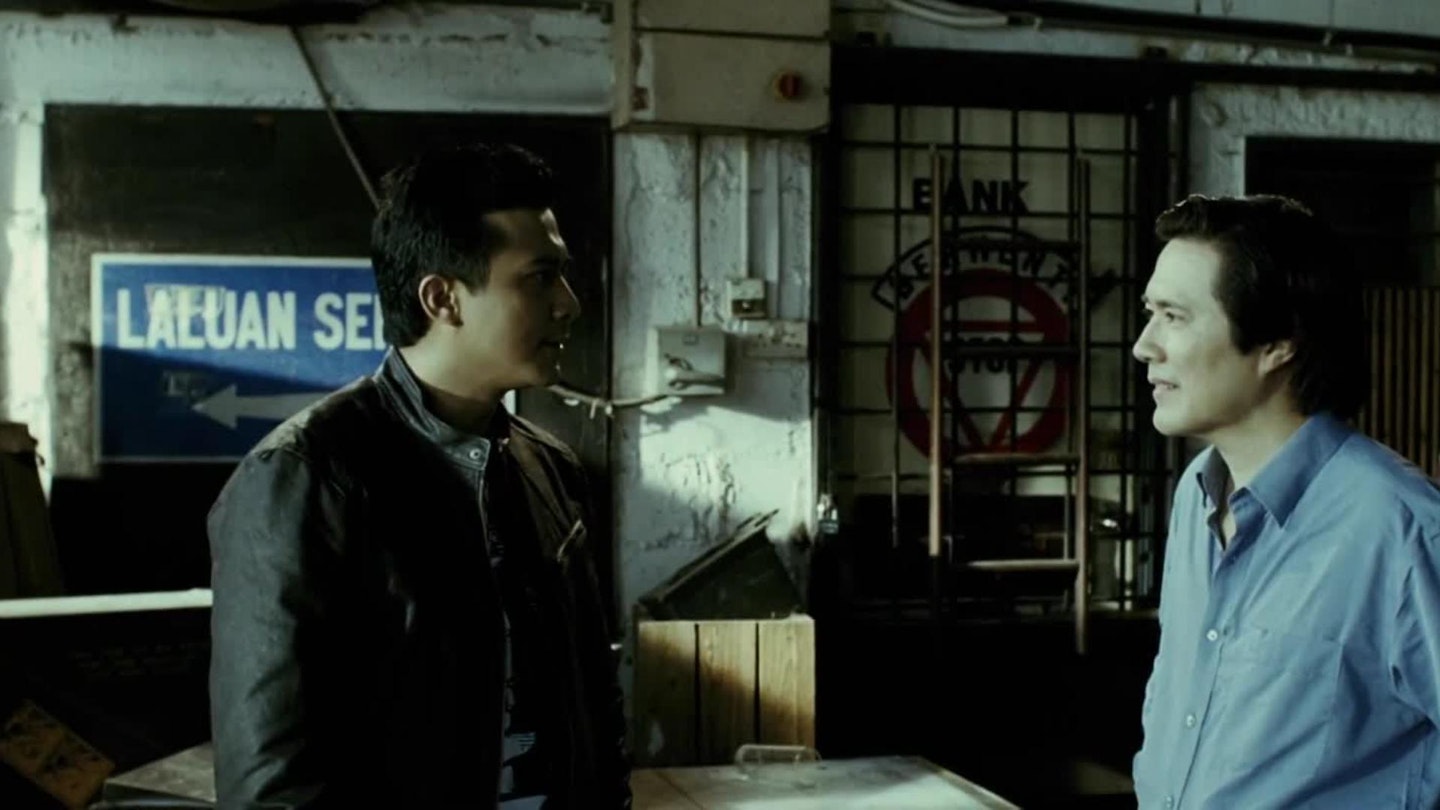Throughout Sidney Lumet's erratic, often brilliant, career he has achieved his greatest success with penetrating examinations of the American justice system. His courtroom dramas Twelve Angry Men (1957) and The Verdict (1982) are peerless examples of the genre, but it is the closed brotherhood of the police force and the corruption it appears to breed that has maintained a chokehold on his imagination. In the wake of 1973's Serpico, still his most famous venture into the territory, it's a theme he has returned to time and again. Apart from this early 80s offering, he trod similar ground with the generally solid Q&A in 1990 and the disappointing, if evocatively titled, Night Falls On Manhattan seven years later.
Accepting a bravura performance by Al Pacino in the title role, it is difficult to see why Serpico remains the most celebrated of Lumet's cop flicks. Up against this multi-layered, exhaustively detailed descent into the miasma of twisted loyalties, back stabbing, blackmail and deceit thrown up by an Internal Affairs probe of the NYPD, it's an uncharacteristically shallow little morality play. Even Pacino, in ludicrous tea cosy hats and drooping face fur, doesn't look too convincing these days. And even less so when pitted against Treat Williams as Danny Ciello, the gung-ho cop-turned-informer whose life is destroyed when the poisonous can of worms he conspires to pry open spills out around him.
In fact, the contrast between the characterisations of Frank Serpico and Danny Ciello mirrors the qualitative distance between the films themselves. Serpico is an honest cop out to bust corruption in his department; it's a straightforward white hat/black hat scenario. Ciello is infinitely more complicated. His decision to turn informer is not motivated solely by ethical convictions but more by a disastrous collusion of guilt, fear and an overarching lust for glory. Ciello is as crooked as every other blueshirt in the bureau, and if he does have a conscience it is one diluted by an instinct for self-preservation and a seriously warped hero complex. It's this dichotomy that leads him into the abyss.
Naively believing he can expose the dark side of the force without sacrificing his buddies he takes the Feds' shilling and goes undercover, stumbling on a narcotics scam that involves selling dope to police informers. Given the necessity of buying information this falls just inside the boundaries of acceptable practice. But, as Ciello soon learns, it's a system riddled with corruption, with cops hoovering up product before it reaches the street and falling over themselves to accept every bribe on offer.
Danny does his duty by the Feds and gives up the perpetrators. But in doing so, he breaks the trust that binds the force and is marked as a fink for life. And once he takes the plunge, and Lumet's intricate canvass broadens out, the boundaries between right and wrong becomes seriously blurred. On one hand the cops Danny turns have their hands in the till up to the elbows, heavily involved in drugs, bribery and corruption they had it coming. On the other, they adhere to a strict code of honour (albeit honour among thieves) and they are fiercely loyal to their own any one of them would have put his arm in the fire before ratting on a friend.
Contrast that to the Feds who are busy putting the squeeze on Ciello: ruthless scum to a man they are a dyspeptic Inquisition in cheap suits and bad ties. And yet, with the whip being fiercely cracked over their narrow backs, what choice do they have but to force Ciello to give up everything he knows, betraying even his closest friends and family?
A pariah to his former colleagues, under siege by the Feds at one point he is even threatened with prosecution over his own past transgressions and with the Mob attempting to buy him off, Danny forges deeper and deeper into the moral maze, desperately searching his conscience for a way out. It's giving nothing away to report that he doesn't find one.
Prince Of The City is not simply Lumet's best cop movie by far, it's also, arguably, the best cop movie in the sub-genre's whole world-weary history. With its astonishing kaleidoscopic vision and compelling docu-drama feel it charts the murky territory where law enforcement and the 35ft underworld join hands with relentless clarity and a steely rejection of sentimentality. Lumet's supreme achievement is in maintaining absolute control over a narrative nest of vipers that constantly threatens to tie itself in knots. With its harsh, over-bright interiors, grainy New York locations and acres and acres of talk the film is at once sprawling and deeply oppressive.
That it was a commercial failure, however, is no surprise at all. It's a long, labyrinthine film that demands absolute attention. Even then it is hard to keep tabs on exactly what's going on. But like many "difficult" films it rewards the effort tenfold, and it's doubtful whether a better performance was committed to celluloid in 1981 than Treat Williams' portrayal of the tortured Danny Ceillo. In a staggering feat of acting prowess. Williams essays a fundamentally good, yet deeply flawed, human being disintegrating under intolerable pressure with rare courage and intensity. He's surrounded by a formidable cast of supporting players, but he shoulders the bulk of the film's colossal weight nevertheless. Why this role did not propel Williams to the front rank of screen actors has been the subject of dark conjecture ever since.
Lumet might have lost his edge of late, but he's got a formidable body of work to rest on. How sad it is then to see Williams' great talent wasted on swill like The Substitute IV when he should, on this evidence, have been giving De Niro sleepless nights for the last two decades.
